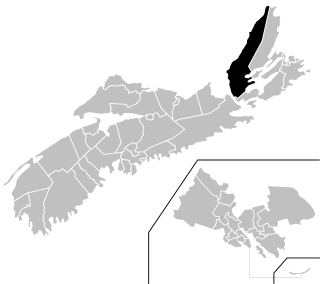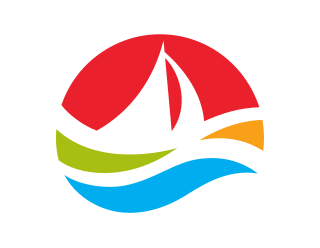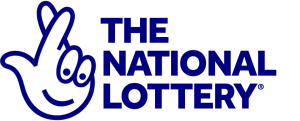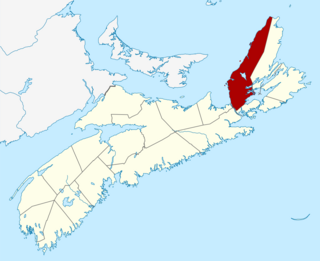
A lottery is a form of gambling that involves the drawing of numbers at random for a prize. Some governments outlaw lotteries, while others endorse it to the extent of organizing a national or state lottery. It is common to find some degree of regulation of lottery by governments. The most common regulations are prohibition of sale to minors and licensing of ticket vendors. Although lotteries were common in the United States and some other countries during the 19th century, by the beginning of the 20th century, most forms of gambling, including lotteries and sweepstakes, were illegal in the U.S. and most of Europe as well as many other countries. This remained so until well after World War II. In the 1960s, casinos and lotteries began to re-appear throughout the world as a means for governments to raise revenue without raising taxes.
Powerball is an American lottery game offered by 45 states, the District of Columbia, Puerto Rico and the U.S. Virgin Islands, and overseen by the Multi-State Lottery Association (MUSL), which also manages other large jackpot games such as the Mega Millions. Drawings are held three times weekly on Mondays, Wednesdays, and Saturdays at 10:59 p.m. Eastern Time, at the Florida Lottery's headquarters in Tallahassee.

Inverness is a provincial electoral district on Cape Breton Island, Nova Scotia, Canada, that elects one member of the Nova Scotia House of Assembly.
A video lottery terminal (VLT), also sometimes known as a video gaming terminal (VGT), video slots, or the video lottery, is a type of electronic gambling machine. They are typically operated by a region's lottery, and situated at licensed establishments such as bars and restaurants.

Lotto 6/49 is one of three national lottery games in Canada. Launched on June 12, 1982, Lotto 6/49 was the first nationwide Canadian lottery game to allow players to choose their own numbers. Previous national games, such as the Olympic Lottery, Loto Canada and Superloto used pre-printed numbers on tickets. Lotto 6/49 led to the gradual phase-out of that type of lottery game in Canada.
Sixty-three is a card game popular in Charlotte County, New Brunswick, and on Cape Breton Island, Nova Scotia, and is named after the number of points which can be taken in a hand. This game is nearly identical to the Pitch variant Pedro. It also has features reminiscent of Euchre.

The Atlantic Lottery Corporation (ALC), branded as simply Atlantic Lottery or Loto Atlantique, is a Canadian organization that provides government-regulated lottery products in Atlantic Canada. They offer a wide range of games, from draw games to online bingo; breakopen tickets to sports wagering; and games in both social settings and online.

Rodney Joseph MacDonald is a Canadian politician, educator and musician who served as the 26th premier of Nova Scotia from 2006 to 2009 and as MLA for the riding of Inverness in the Nova Scotia House of Assembly from 1999 to 2009.
The Maine Lottery is run by the government of Maine. It is a member of the Multi-State Lottery Association (MUSL), whose flagship game is Powerball. It was founded in 1974 after being approved through a voter referendum.

The Connecticut Lottery Corporation, also called the CT Lottery, is the official lottery in Connecticut. It was created in 1971 by then-Gov. Thomas Meskill, who signed Public Act No. 865. The first tickets were sold on February 15, 1972. The Connecticut Lottery offers several in-house drawing games; Connecticut also participates in Mega Millions and Powerball; each are played in 44 states, the District of Columbia, and the U.S. Virgin Islands.
The New Jersey Lottery is run by the U.S. state of New Jersey. Its In-house draw games are Pick-3, Pick-4, Jersey Cash 5, Pick-6, Quick Draw, and Cash Pop. Its multi-jurisdictional draw games are Cash4Life, Mega Millions, and Powerball. The Lottery also sells Fast Play and scratch-off tickets. The New Jersey Lottery is headquartered at One Lawrence Park Complex in Lawrence Township, Mercer County.
The Michigan Lottery was initiated under the authority of Public Act 239 in 1972, and collects funds to support Michigan's public school system.

The Illinois State Lottery is an American lottery for the U.S. state of Illinois, operated by Allwyn Illinois.
The Virginia Lottery is an independent agency of the Commonwealth of Virginia. It was created in 1987 when Virginians voted in a statewide referendum in favor of a state lottery. The first ticket was sold on September 20, 1988. All profits from Virginia Lottery ticket sales go to K-12 public education, as required by Virginia's constitution. In Fiscal Year 2024, the Lottery's profits totaled more than $934 million, accounting for approximately 10 percent of school funding in Virginia. That brought total Lottery profits in Virginia to more than $16 billion.

The National Lottery is operated by ITHUBA Holdings, to whom the licence was granted in 2015. The lottery is regulated by the National Lottery Commission, and was established in 2000.

The National Lottery is the state-franchised national lottery established in 1994 in the United Kingdom. It is regulated by the Gambling Commission, and is operated by Allwyn Entertainment, who took over from Camelot Group on 1 February 2024.

Lotto Max is a Canadian lottery game coordinated by the Interprovincial Lottery Corporation, as one of the country's three national lottery games. Introduced on September 19, 2009, with its first draw occurring on September 25, 2009, the game replaced Lotto Super 7. As of May 2019, Lotto Max drawings are held every Tuesday and Friday.

Allan Gerard MacMaster is a Canadian politician. He represents the electoral district of Inverness in the Nova Scotia House of Assembly as a member of the Progressive Conservative Party.
A lottery is a form of gambling which involves selling numbered tickets and giving prizes to the holders of numbers drawn at random. Lotteries are outlawed by some governments, while others endorse it to the extent of organizing their own national (state) lottery. It is common to find some degree of regulation by governments, like allowing or prohibiting online sales of tickets.

The Municipality of the County of Inverness is a county municipality on Cape Breton Island, Nova Scotia, Canada. It provides local government to about 17,000 residents of the historical county of the same name, except for the incorporated town of Port Hawkesbury and the Whycocomagh 2 Miꞌkmaq reserve, both of which are enclaves. Public services are provided in the areas of recreation, tourism, administration, finance, and public works.












